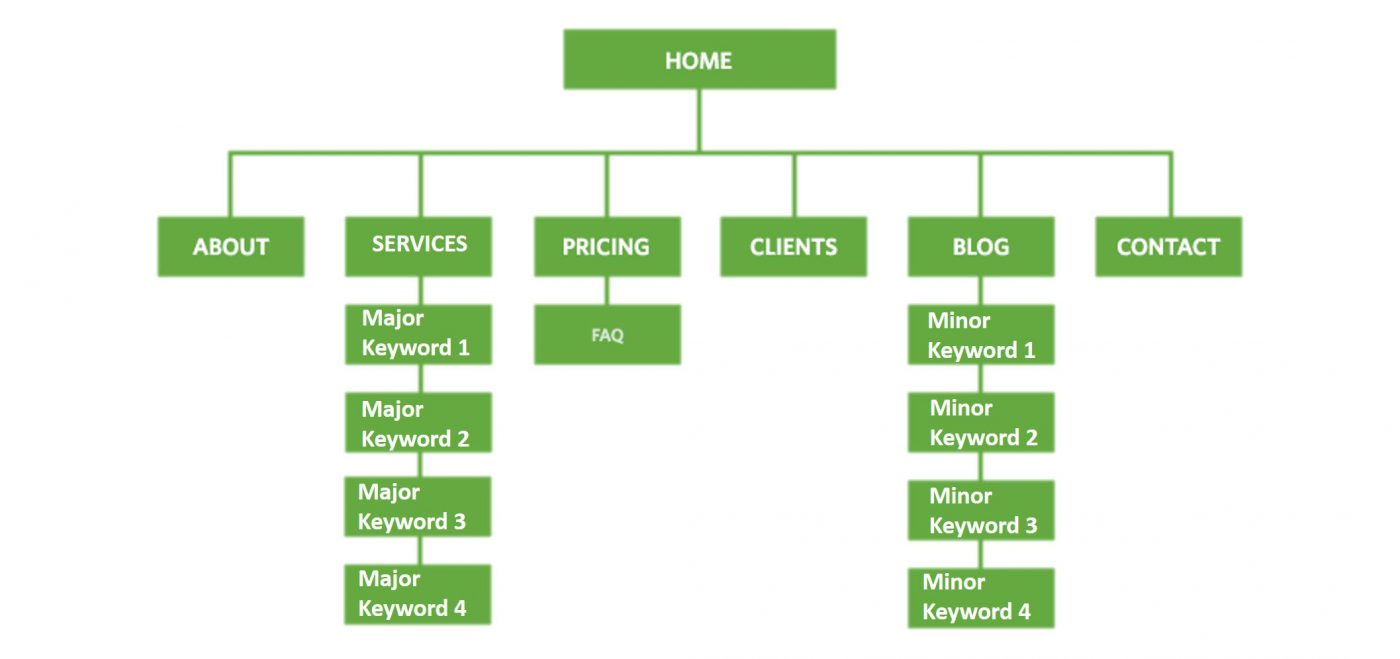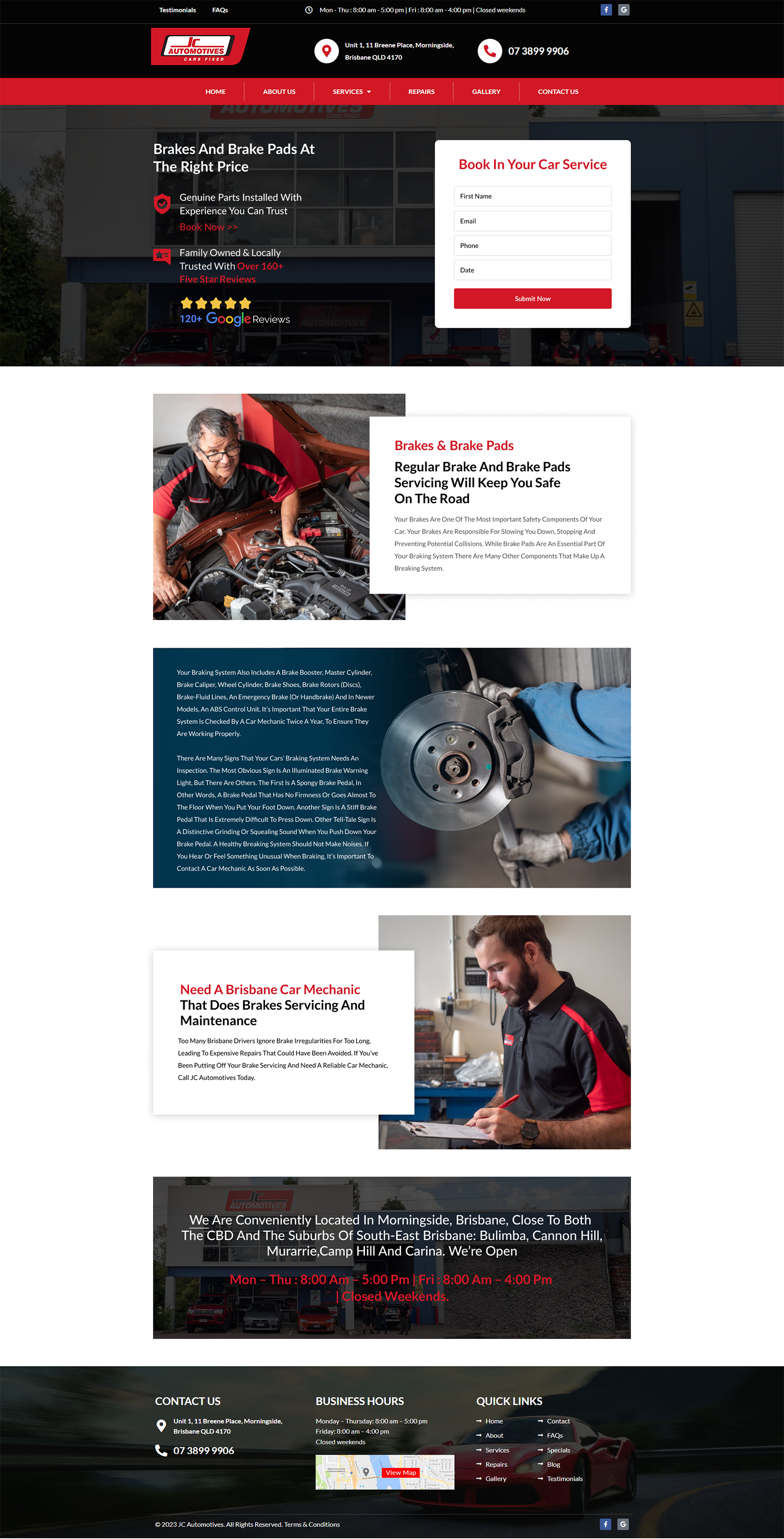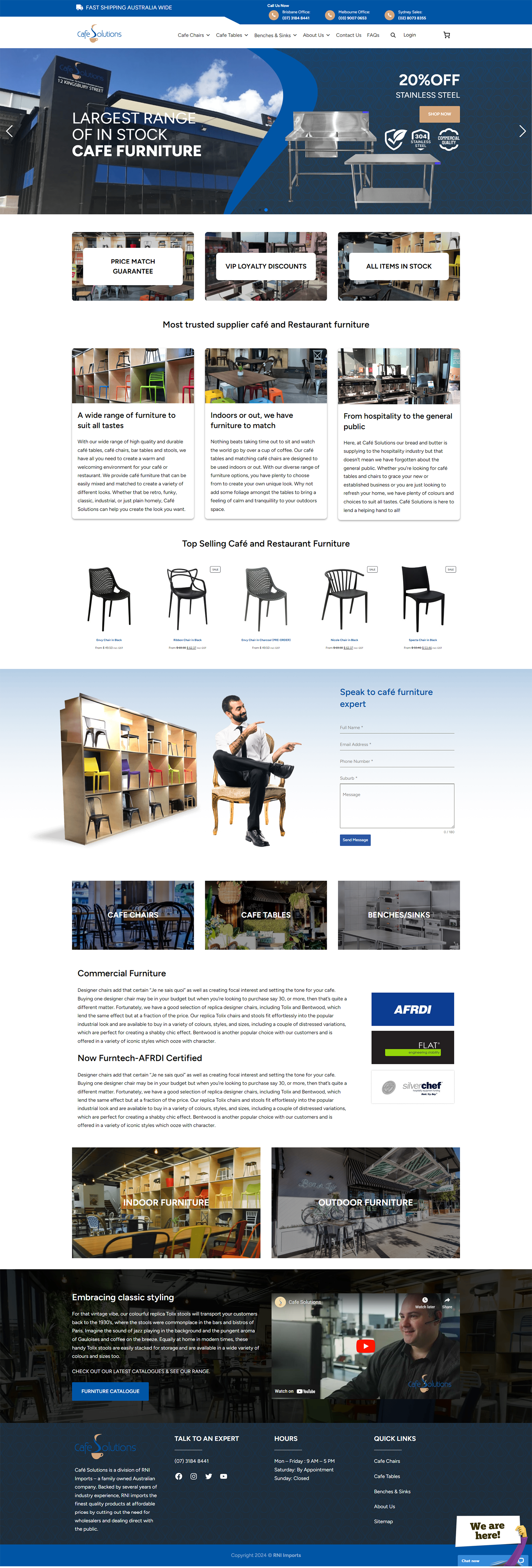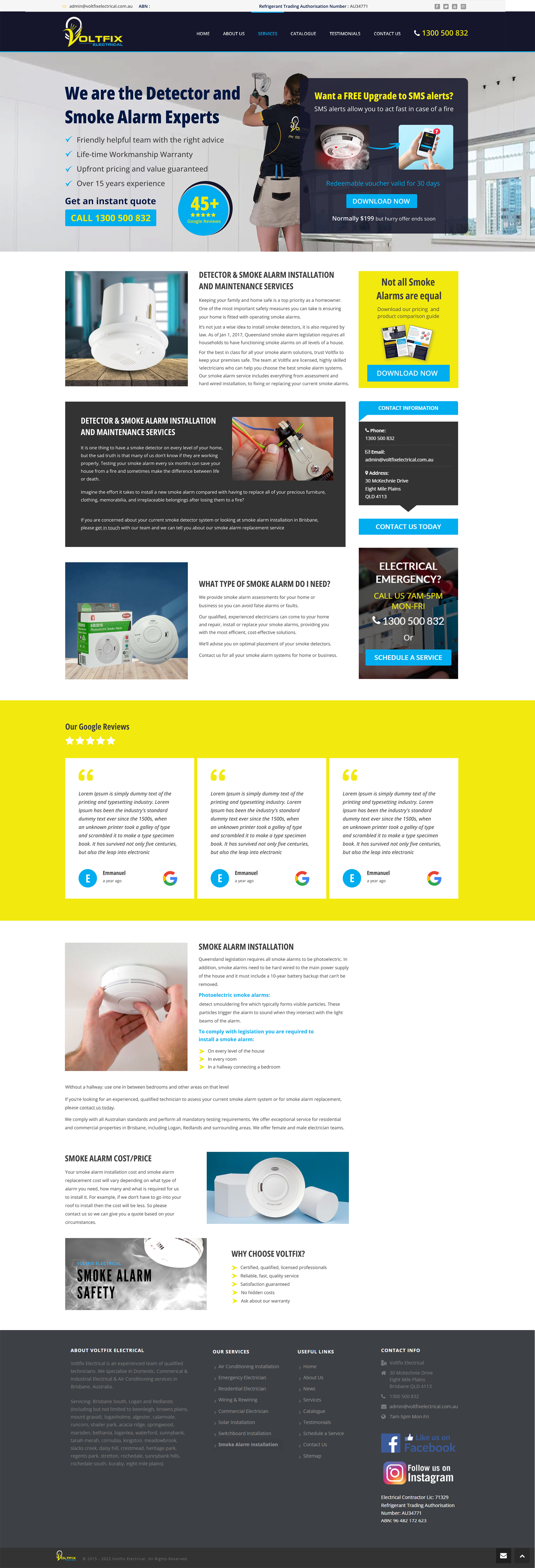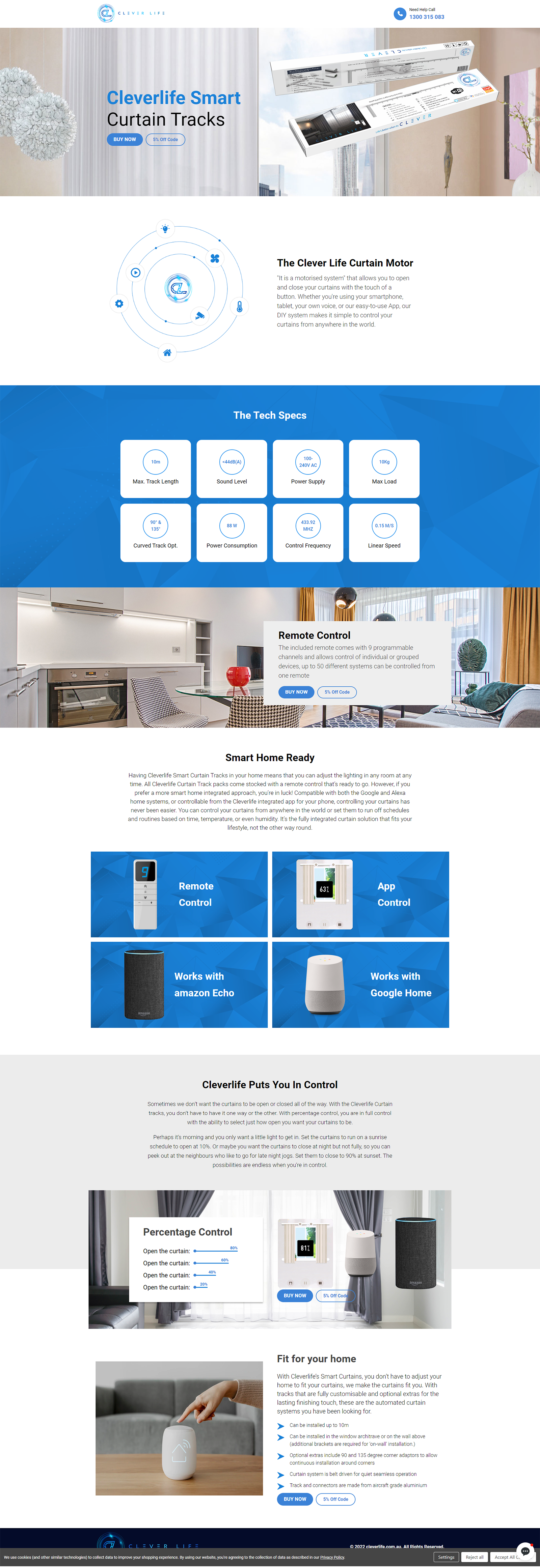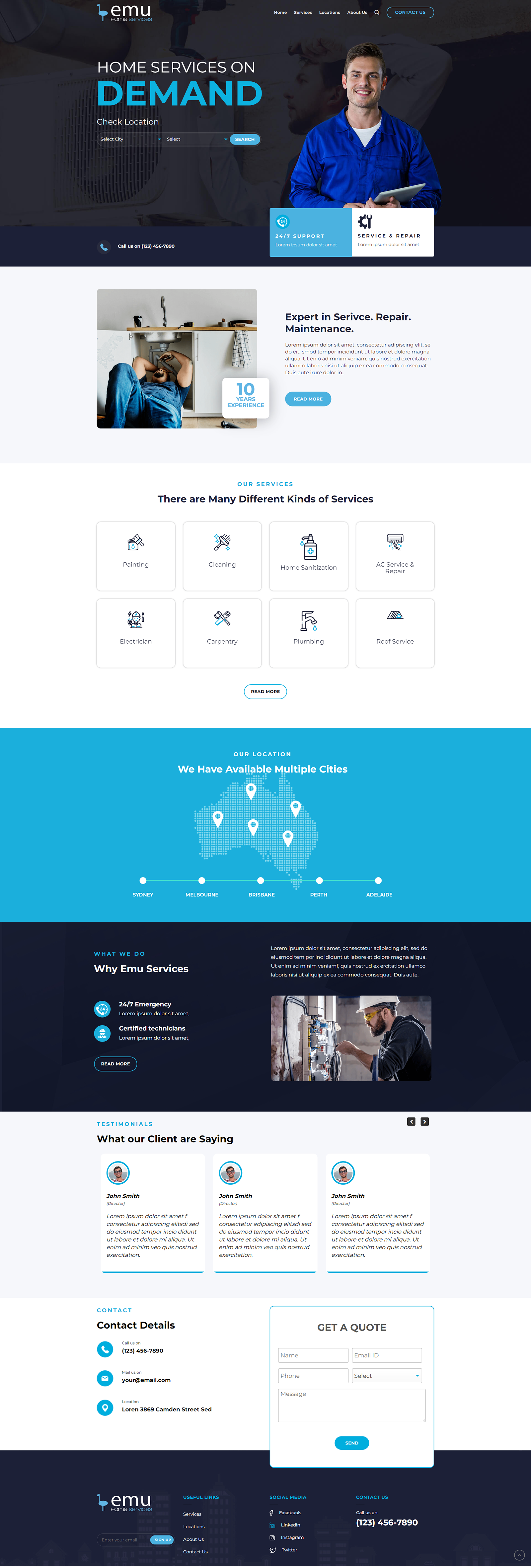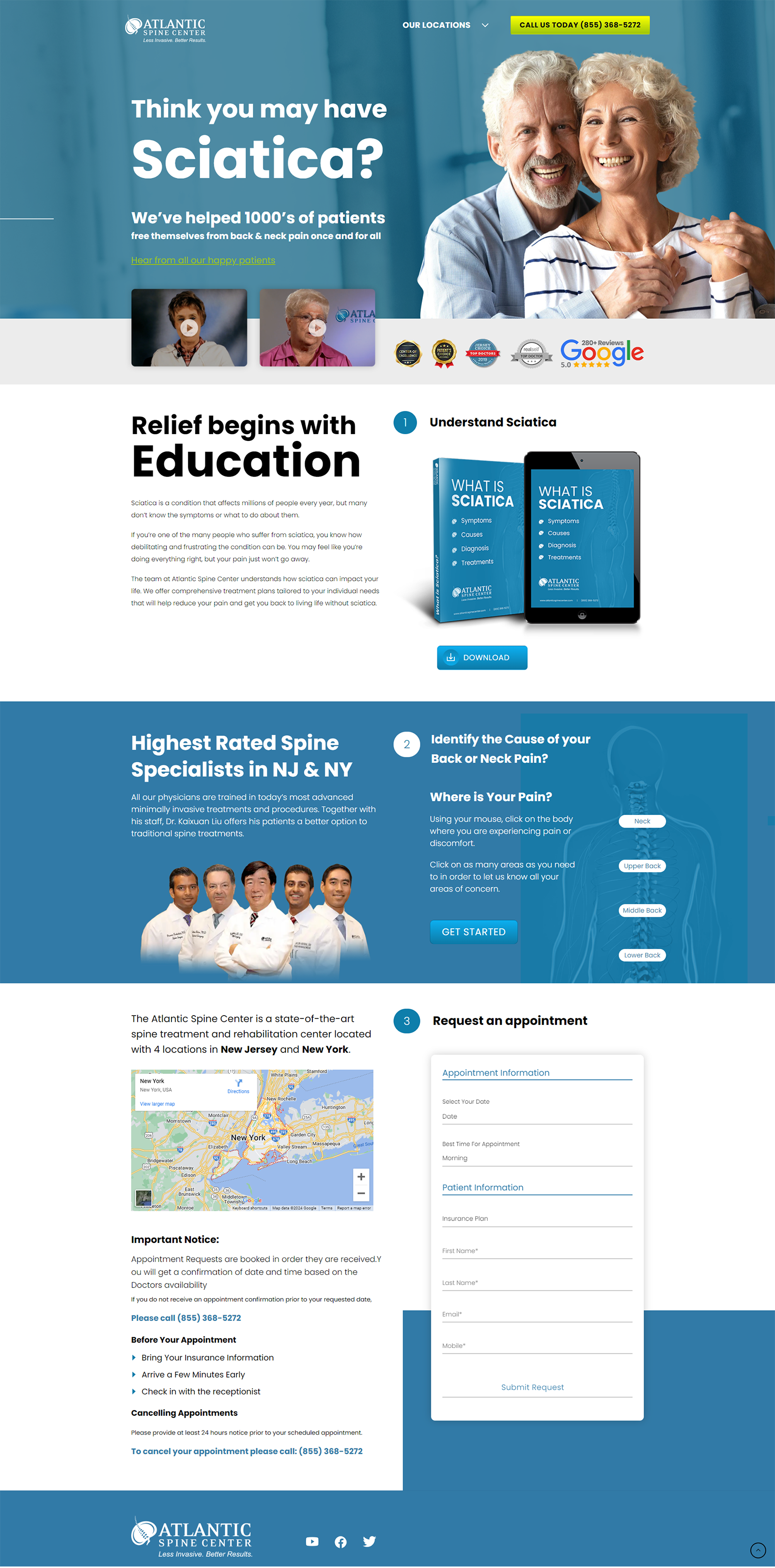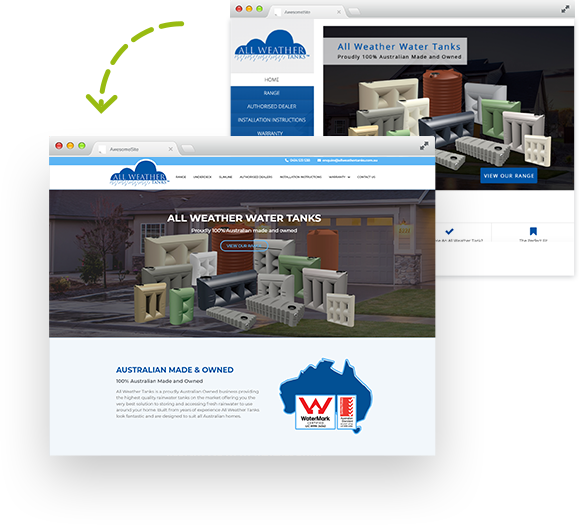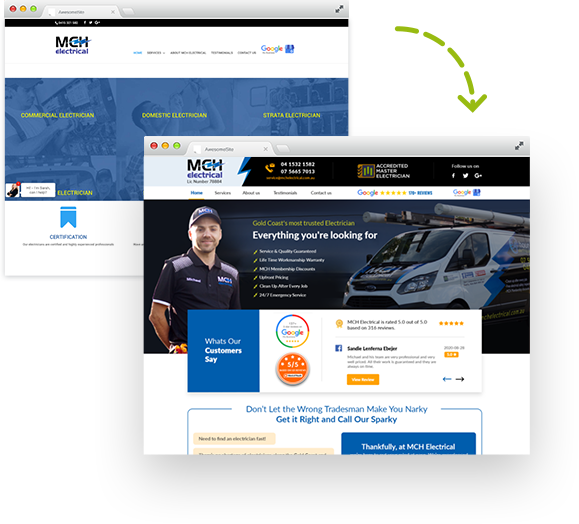One of the most common mistakes I see when analysing websites onsite SEO, is people trying to use their website’s home page to rank for every keyword that’s relevant to their business. Although the homepage does naturally have more power than any other page on the website it’s just not realistic to use it to rank it for hundreds of keywords.
Each page has 7 places where keywords can be included to give that page relevance to a keyword in the eyes of Google and other search engines. The following list is in order of how google values each one:
- The domain name.
- The anchor text used on the website to link to it.
- The url.
- The page titles.
- Meta descriptions.
- Headings.
- Content.
With the exception of content, each of these locations have very limited amount of characters available in which to use keywords to pass relevance to Google. if you try to use only the homepage to rank all of your keywords it’s very hard to target multiple keywords within such a confined amount of available characters.
In order to target multiple keywords more effectively we can break our list of keywords into keyword themes and create a sub page for each keyword theme. So, to put this into a simple example, let’s say you are a local Brisbane plumber with 3 services: blocked drains, leaking taps and hot water systems; you would use the homepage to target the most generic keywords e.g.: “plumber Brisbane” or “Plumbing Brisbane”, then you would create a page for each of your 3 services:
exampleplumber.com.au/blocked-drain-brisbane
exampleplumber.com.au/leaking-taps-brisbane
exampleplumber.com.au/hot-water-systems-brisbane
this allows us to us to target our keywords with 6 of the 7 relevance factors mentioned above (we can’t change our domain, so we can never hit all 7 for all keywords). Achieving 6 of 7 relevance factors gives us a lot better chance of ranking each of the specific keywords.
If you would like to see a live example of this in action, Google search the example keywords and check for yourself if the top two websites that are ranking are doing so with their homepage or with a targeted inner url.; now check the second and third keywords and see which websites are ranking for all 3. It doesn’t matter the location you are searching from, I guarantee no websites will be ranking for all 3 with just the homepage.
Although this is a simplified example for a local website, the same methodology applies for a large national brand. Each keyword theme and each target area require its own unique and specific targeting page.

Chris Crawford
Head of Digital Strategy
Chris manages our digital managers and oversees performance on every account. Often referred to as the inventor of the internet, there are very few technical, performance or analytical problems he can’t solve. Former accountant and auditor this bean can do it all with innovation as his second name and client results as his first.

